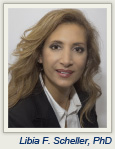
Gastric cancer is diagnosed in nearly 1 million people globally each year and is responsible for 740,000 deaths, making it the second leading cause of cancer death in the world. According to the American Cancer Society, more than 21,000 people in the United States were diagnosed with gastric cancer and more than 10,500 died from the disease in 2010. Currently, more than 64,000 Americans are living with gastric cancer, and studies have shown that incidence of the disease is rising in younger males due to a number of underlying factors that, if caught early enough, may help cure it.
Limited research is being conducted on gastric cancer for a variety of reasons, including a lack of funding and only a few physicians specializing in the disease. Per cancer death, gastric cancer receives the least amount of federal funding. In addition, there are currently limited places where patients with gastric cancer can turn for information and support services. When a person is diagnosed with incurable cancer, it is vital to receive the best advice and therapy, but this is difficult for patients without adequate accessible useful resources.
Education Gap
Too many patients with gastric cancer are not diagnosed early enough. According to a recent survey conducted online,a among 2,398 U.S. adults aged 18 or older who were asked what disease they think of first when someone has all the following symptoms: indigestion, heartburn, bloating, mild nausea, loss of appetite, weight loss, and filling up quickly even though hungry—“stomach cancer” was selected by only 5%. In addition, 93% of U.S. adults who visit doctors regularly have not inquired about screening for stomach cancer.
“These results tell us that fundamental knowledge of gastric cancer symptoms and its risk factors are not in the public consciousness, despite the fact that it is one of the deadliest cancers and the number two cancer killer in the world,” said Debbie Zelman, founder of Can’t Stomach Cancer (see sidebar). “My goal is to help educate doctors, patients, families, and caregivers about this disease.”
Screening Is Key
“If one is familiar with the risk factors for gastric cancer, the risk can be reduced. If one is familiar with the symptoms of gastric cancer, it can be diagnosed early. Both these factors can make a big difference in the outcome,” stated Jaffer Ajani, MD, Professor of Medicine at The University of Texas MD Anderson Cancer Center in Houston, and Chair of the Can’t Stomach Cancer Medical Advisory Board.
“Unfortunately, these survey results show that people in the United States are not familiar with the symptoms or risk factors of stomach cancer,” he said. “However, in Asia, where the disease is much more common, gastric cancer screening is the norm (for example, in Japan), like our screenings for prostate, breast, cervical, and colon cancers. When you consider that the presence of two of the highest precursors to stomach and esophageal cancers—Helicobacter pylori and acid reflux—can lead to early diagnosis, physician and public awareness become critical to success,” he stressed.
“If you are Asian or Hispanic, you may want to be tested for H pylori through a simple breath test. The high incidence of acid reflux or gastroesophogeal reflux disease, which has been associated with the rise of gastroesophageal cancer in younger white males, is also an indicator,” continued Dr. Ajani.
Bridging the Gap
In order to bridge the gap and increase awareness among patients and general health-care providers, we need to unite the medical and patient communities through education.
On April 21, 2012, Can’t Stomach Cancer will host its 2nd Annual Stomach Cancer Patient Education Symposium in Hollywood, Florida, which will also be accessible via live webcast. Lecturers will include Dr. Ajani; Michael A. Choti, MD, MBA, a surgical oncologist at Johns Hopkins Kimmel Cancer Center; and Kathleen Wesa, MD, an integrative medicine specialist at Memorial Sloan-Kettering Cancer Center.
“The goal of this symposium is simple: Provide a forum to make the nation aware that stomach cancer is on the rise, and inform the public about who is at risk for the disease. Stomach cancer can be prevented and is curable if we just understand the symptoms and know enough to be screened. Screening will save lives,” stated Ms. Zelman. ■
Disclosures: Dr. Ajani is an advisor to Amgen; has research grants from Taiho, Novartis, BMS, Sanofi, ACT, Genta, and Amgen; and honoraria from Sanofi, Bristol-Myers Squibb, Taiho, and Amgen. Ms. Zelman reported no potential conflicts of interest.
SIDEBAR: ‘Can’t Stomach Cancer’ Seeks to Jump-start Research, Raise Awareness
Dr. Scheller is on the Board of Directors of Can’t Stomach Cancer and Medical Director at the Institute for Medical Education and Research, Miami.

